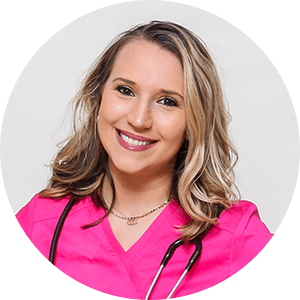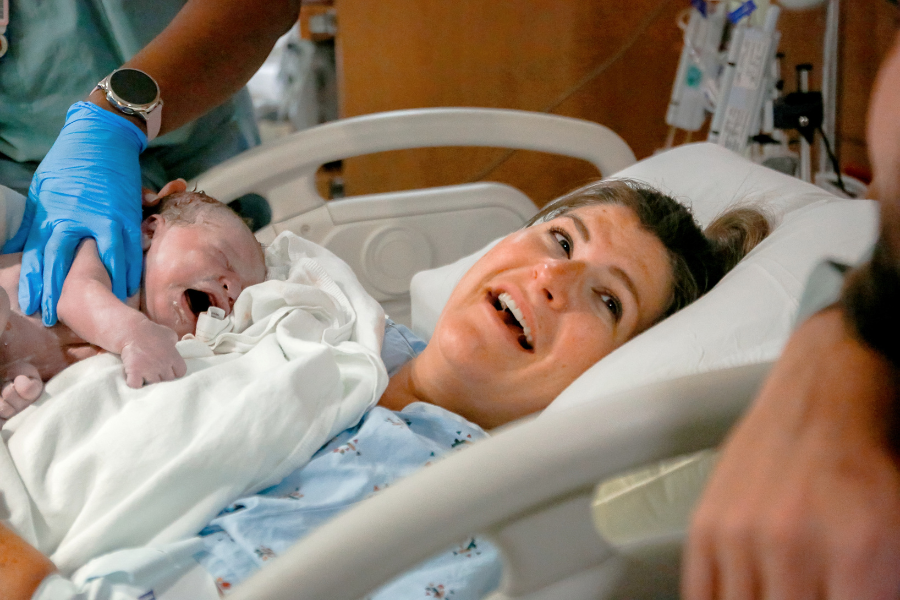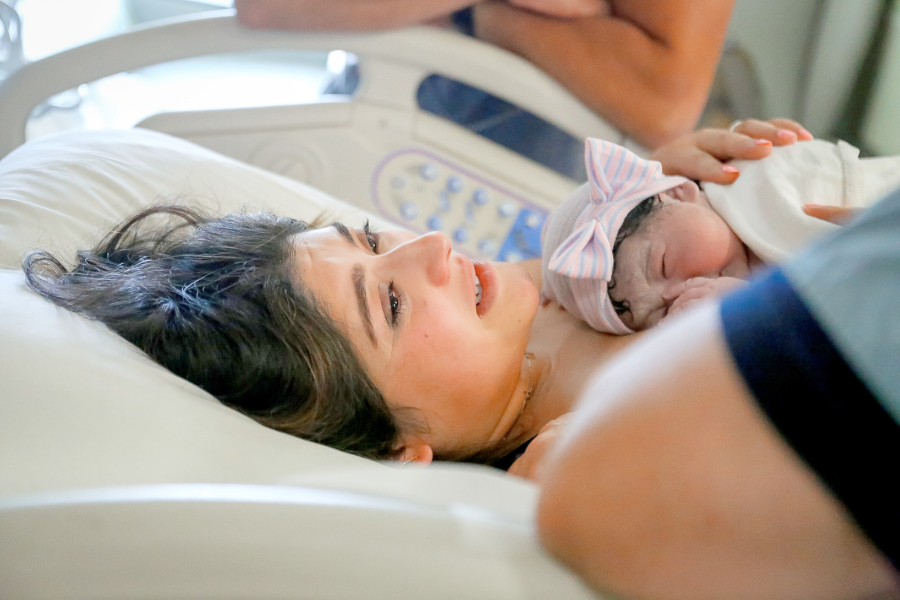I frequently get asked, “What medications are safe to take during pregnancy?”. So today, let’s do it! Read on to learn all the info regarding safe medications during pregnancy!
But first, to err on the side of caution, I always recommend you double check with your provider prior to taking anything – even those things listed here.
So, are you ready to learn more about what you should and shouldn’t take for relief from common ailments that might present during pregnancy? Jump aboard, and let’s get started!
Follow @mommy.labornurse on Instagram to join our community of over 650k for education, tips, and solidarity on all things pregnancy, birth, and postpartum!
The deal with medications and pregnancy
The thing about medications and pregnancy is that most of them aren’t specifically studied, at least in length, for pregnancy. So for a lot of medications, there simply aren’t guidelines for pregnant women. Which – when you think about – makes total sense!
I mean, it’s not easy to get a pregnant mama to agree to take something that may or may not cause some degree of harm to their unborn baby. I certainly wouldn’t be itching to sign up for that study!
So what are OBs and prenatal care providers to do?? Well, mostly they weigh the risks and benefits of a woman continuing certain medications during pregnancy. Let’s talk about safety classifications to learn more.
How medications are classified for pregnancy safety
Wondering how medications are actually classified for pregnancy safety? Nearly a decade ago the FDA updated the way medications were labeled for pregnant and lactating women.
Prior to 2015, medications were assigned a letter: A, B, C, D, or X. These correlated with the drug’s potential to cause birth defects if used during pregnancy.
Since 2015, the system has been updated. This “allows better patient-specific counseling and informed decision making for pregnant women seeking medication therapies,” according to the FDA and Drugs.com.
And although there is much improvement with the newer labeling system, the FDA still recommends medication use during pregnancy be addressed on a case-by-case basis.
Instead of using letter categories, medications are now placed into narrative sections and subsections. The three main sections are pregnancy, lactation, and females and males of reproductive potential. Under each main section there are a handful of subsections that provide additional information about the medication as it relates to the pregnant, lactating, or potentially reproductive individual.
According to the FDA via Drugs.com, “the pregnancy subsection will provide information about dosing and potential risks to the developing fetus and registry information that collects and maintains data on how pregnant women are affected when they use the drug or biological product.”
The long and short of it is that many women require the use of some kind of medication at some point during their pregnancy. And while the decision should be made by the patient, in conjunction with their specific OB provider, the FDA has implemented guidelines to help guide these decisions.
OTC medications safe for pregnancy
I feel like up until this point I have thrown a lot of info your way regarding classifying and labeling medications. I know what a lot of you are probably thinking, “Give me the good stuff already!”.
Below I’m going to break down over-the-counter medications that are safe for pregnancy, organized by some of the more common ailments that occur during pregnancy.
And even though the lists are taken straight from my own OB’s office, I always recommend discussing with your specific prenatal provider before taking anything.
Pregnancy-safe medications for colds and allergies
- Claritin
- Zyrtec
- Benadryl
- Lozenges
- Saline nasal spray
- Flonase nasal spray
- Rhinocort nasal spray
- Nasonex nasal spray
* Do NOT use products that contain phenylephrine or pseudoephedrine!
Pregnancy-safe medications for cough
- Delsym
- Robitussin
- Robitussin-DM
- Mucinex
- Mucinex-DM
- Cough drops
Pregnancy-safe medications for headaches
- Excedrin tension headache (not excedrin migraine)
- Tylenol
Tylenol use in pregnancy is something that has attracted quite a lot of attention, so I wanted to briefly touch base on it.
According to the American College of Obstetricians and Gynecologists (ACOG), “ACOG and obstetrician-gynecologists across the country have always identified acetaminophen as one of the only safe pain relievers for pregnant individuals during pregnancy.” (Source)
I have an entire post dedicated to Tylenol use during pregnancy that you can look at below!
Pregnancy-safe medications for constipation
It definitely can’t hurt to just go ahead and add a daily stool softener to your pregnancy routine. A lot of prenatal vitamins contain iron, which can make you constipated.
What’s more, anemia is pretty common in pregnancy too so a lot of providers will recommend taking an OTC iron supplement. If you are taking an iron supplement you should absolutely be taking a stool softener to keep the straining and hemorrhoids at bay!
- Colace
- Metamucil
- Citrucel
- Benefiber
- Milk of Magnesia
- Miralax
Pregnancy-safe medications for diarrhea
- Imodium A-D
Pregnancy-safe medications for heartburn and indigestion
- Rolaids
- Maalox
- Mylanta
- Nexium
- Pepcid
- Prevacid
- Prilosec
- Tagamet
- TUMS
Pregnancy-safe medications for nausea
- Vitamin B6 with doxylamine
Pregnancy-safe sleep aids
- Unisom
- Tylenol PM
- Nytol
Pregnancy-safe medications for hemorrhoids
If you find yourself suffering from pesky and uncomfortable hemorrhoids you are not alone! Hemorrhoids are super common in pregnancy but that doesn’t mean you have to just suck it up and deal with them!
In addition to a daily stool softener, a fiber supplement, and hemorrhoid cream, there are other, non-medicinal things you can do to help! For more info about what causes hemorrhoids and tips for relief, be sure to check out my post below!
Prenatal vitamins
My favorite prenatal vitamin is Ritual! I personally love that they don’t overdo it in the ingredients list, since most people get a LOT of vitamins from their diet.
Not all prenatal vitamins are made the same so it’s really important to look at the ingredients when doing your research!
And, you can use code LNURSE10 and this link to save 10% off your first order of Ritual prenatal vitamins!
Prescription medications during pregnancy
While I recommend talking to your provider prior to taking any medication during pregnancy, I highly recommend running any existing prescription medications by your OB upon learning you are pregnant.
There are certain medical conditions that warrant remaining on prescription medication during pregnancy because the benefit (to mama and baby) outweighs the risk.
Some of the more common conditions that might cause you to remain on your medication include hypertension (high blood pressure), anxiety or depression, and diabetes.
More resources for your pregnancy
If you take anything away from this article please let it be that any medication use during pregnancy, whether OTC or prescription, should first be discussed with your OB provider!
And for more information and resources about some of the more common pregnancy discomforts you might experience be sure to click the links below!
- All About Lightning Crotch
- All About Foods That Fight Nausea During Pregnancy
- 14 Home Remedies for Heartburn During Pregnancy






